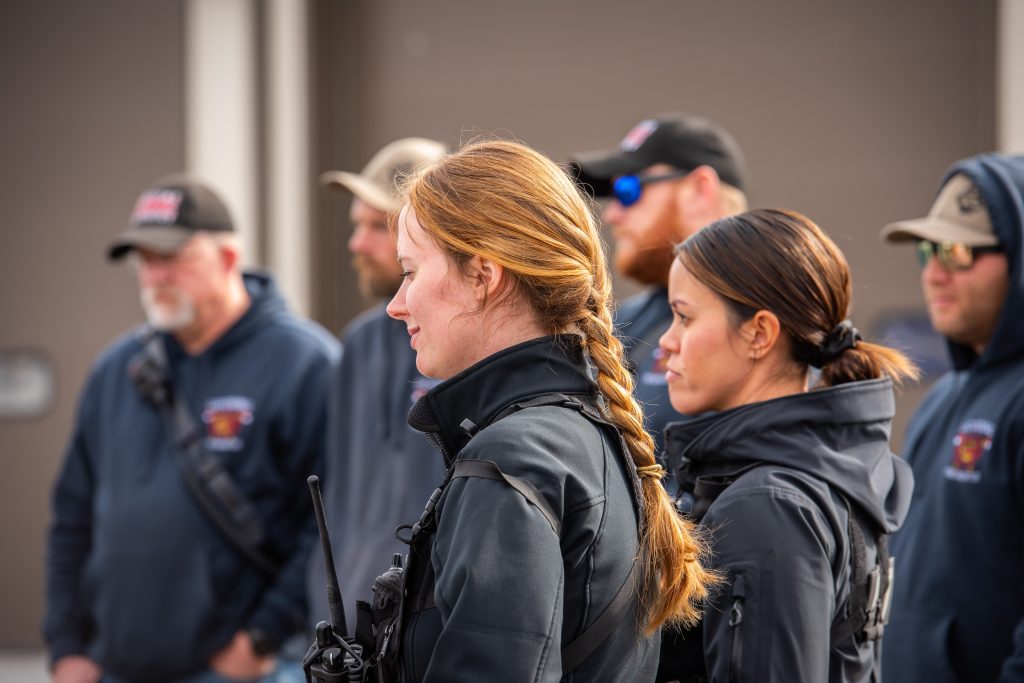Guardsmen train alongside 3 rural Idaho fire departments

The Idaho National Guard’s 101st Weapons of Mass Destruction Civil Support Team trained alongside firefighters from Gooding, Bliss and Hagerman Feb. 2 in Gooding, Idaho. The training was designed to provide a better understanding of how first responders in these small rural Idaho towns can integrate the CST’s assets and expertise with their own to enhance effectiveness in emergency situations where hazardous materials or chemicals may be a key consideration.
Kevin Hungate, a U.S. Department of Energy regional manager for Radiological Assistance Program Team 6, was on site to observe the training as well. He said building relationships with Idaho’s first responders is key to more effective integration if they ever find themselves working together in a real-world scenario in the future.
“Training evolutions like this give us the opportunity to meet these other agencies and build trust,” said Hungate. “These are really good relationship building tools for us.”
The training began with a capabilities brief and tabletop exercise to help familiarize the firefighters with the ways in which the CST can help departments evaluate and contain affected areas, freeing up first responders to focus on more immediate tasks or emerging threats.
The CST Guardsmen then provided a live demonstration of specialized technology and techniques they use to scan and detect potentially harmful chemical agents and radiological sources. The exercise wrapped up with a demonstration of personnel decontamination procedures as they exited a notional “hot zone.”
Gooding Fire Chief Steven Bishop said the training was valuable to him and his firefighters.
“I wasn’t aware of this team at all until they called and talked to us,” said Bishop. “We have limited capabilities in this area, so this is very beneficial to hear about. It’s another resource we can use in certain types of situations that we didn’t have before.”
The 101st WMD CST is capable of providing around-the-clock response and support to requesting first responders and can provide identification of chemical, biological and radiological agents; recommendations for mitigation, medical treatment and follow-on resources; and on-site communications connectivity.
Lt. Col. John McDaniel, commanding officer of the 101st, said the unit’s outreach program is designed to help foster relationships and build on mutual understanding of each agency’s capabilities, limitations and operational demands to enhance their ability to work together effectively in times of crisis.
“Any time we have a chance to work with emergency managers from our neighboring communities, that’s a huge win for us and for the community,” said McDaniel.
 Official Government Website
Official Government Website